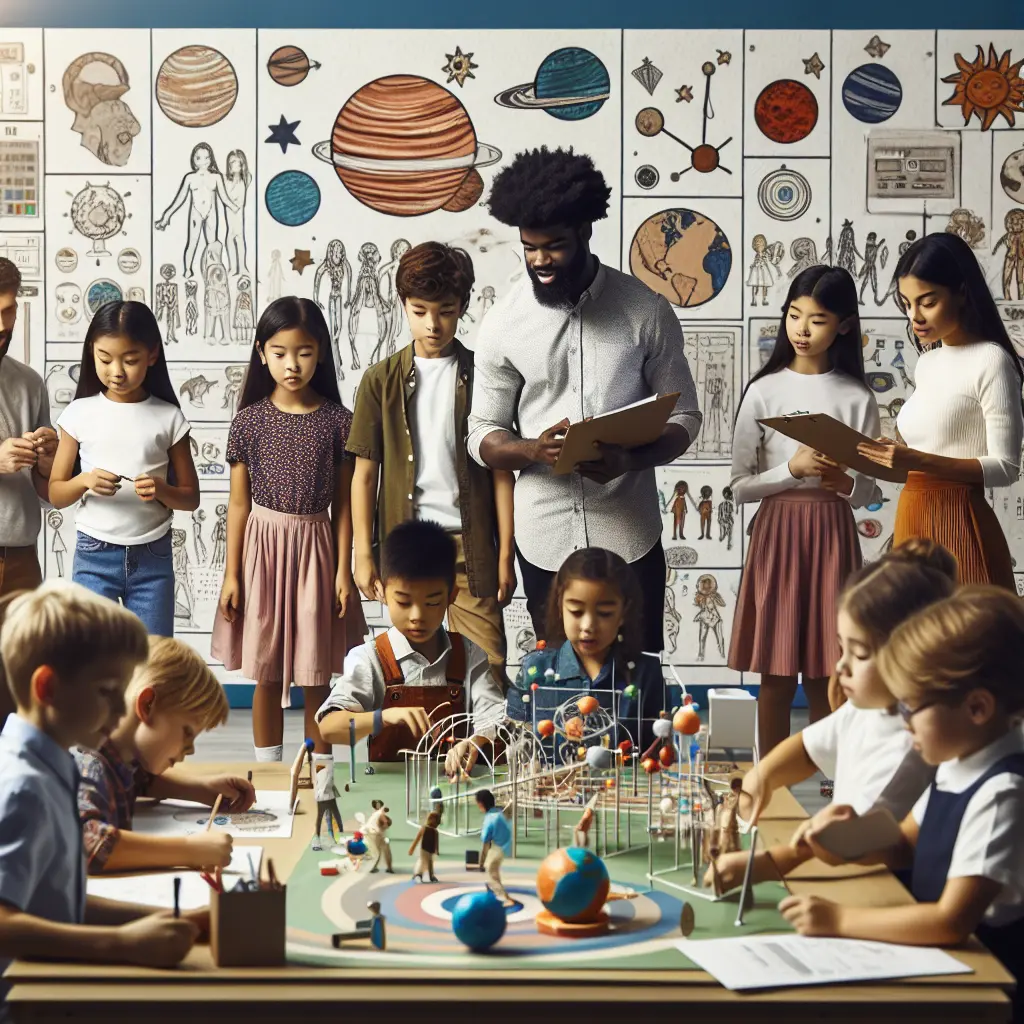
The Benefits of Project-Based Learning in Classrooms
In today's dynamic educational environment, project-based learning (PBL) has emerged as a pivotal method in revolutionizing the way students learn. With the advent of innovative teaching methods, PBL is not only reshaping student engagement but also enhancing the development of real-world skills in education. Let's delve into the distinct advantages of project-based learning in classrooms and explore its transformative impact.
Enhancing Student Engagement and Motivation
One of the most compelling benefits of PBL is its ability to boost student engagement and motivation. Unlike traditional rote memorization techniques, PBL immerses students in experiential learning environments. This method fosters active participation as students tackle complex problems, making learning a more engaging experience.
Consider the recent initiative by Elon Musk’s private school in Texas, which has started accepting applications for the 2024-2025 school year. This institution is integrating PBL to create an immersive learning environment where students can engage deeply with their subjects. By focusing on real-world problems, students are motivated to learn and are equipped with critical thinking skills essential for future challenges.
Building 21st-Century Skills through Collaborative Learning
PBL is instrumental in developing essential 21st-century skills among students, particularly through its emphasis on collaborative learning. In a world where teamwork is pivotal, PBL prepares students to work effectively in group settings, mirroring real-world professional environments.
The transformation of a partially constructed building into a vibrant public preschool in New York exemplifies how PBL can support learning and wellness in underserved communities. This project emphasized teamwork and creativity, two critical components of 21st-century skills development source. Such projects empower students to share ideas and build interpersonal skills, preparing them for future professional endeavors.
Integrating Real-World Applications with Classroom Knowledge
A hallmark of project-based learning is its seamless integration of classroom knowledge with real-world applications. This approach not only enhances critical thinking but also improves student motivation by demonstrating the practical relevance of academic concepts.
For instance, the 99BTC presale Learn-to-Earn project illustrates how integrating educational content with financial incentives can lead to significant learning outcomes. This platform combines cryptocurrency education with earnings, offering students a unique opportunity to apply their classroom knowledge in a practical context. Such initiatives highlight the hands-on benefits of PBL, encouraging students to engage deeply with their subjects while developing practical skills.
Bridging Educational Gaps and Fostering Inclusivity
PBL plays a crucial role in bridging educational gaps and fostering inclusivity. By focusing on collaborative projects and diverse perspectives, PBL ensures that all students have equal opportunities to participate and learn.
Recent reports underscore the urgent need for formalized education and training programs in secure software development, as highlighted by the Linux Foundation. Integrating PBL into these programs could address existing educational gaps by providing hands-on experience and collaborative learning opportunities. Such an approach would not only improve motivation but also enhance critical thinking skills among aspiring developers.
Preparing Students for a Globalized Future
As our world becomes increasingly interconnected, preparing students for global challenges is paramount. Project-based learning outcomes reflect the necessity for education systems to adapt and evolve, equipping learners with the tools they need to succeed on a global stage.
Experiences shared by parents who chose international education for their children emphasize the importance of preparing students for a globalized future source. By incorporating PBL into curricula, educators can ensure that students are not only absorbing information but are actively participating in their educational journey. This approach aligns education with the demands of a dynamic world, cultivating well-rounded individuals ready to tackle future challenges.
Conclusion
In conclusion, project-based learning (PBL) is reshaping education by actively engaging students and equipping them with essential skills for the future. Here are the key takeaways:
- Enhanced Engagement and Motivation: PBL immerses students in real-world problems, boosting engagement and critical thinking skills.
- 21st-Century Skills Development: Through collaborative learning, PBL prepares students for teamwork and professional environments.
- Real-World Application: By linking classroom knowledge with practical scenarios, PBL enhances learning relevance and motivation.
- Bridging Educational Gaps: PBL fosters inclusivity and equal learning opportunities by encouraging diverse perspectives and hands-on experience.
- Global Preparedness: PBL equips students with the tools necessary to navigate a globalized world, ensuring they are well-rounded individuals ready to tackle future challenges.
As educators embrace this innovative teaching approach, they pave the way for students to become proactive participants in their educational journeys. The benefits of PBL are evident in institutions like Elon Musk's private school and platforms like the 99Bitcoins Learn-to-Earn project, demonstrating that this method stands at the forefront of educational transformation.
Let us continue exploring and implementing project-based learning strategies that revolutionize education and inspire a new generation of learners. How has PBL impacted your classroom or educational experiences? I invite you to share your insights and thoughts in the comments below. Together, we can cultivate an educational landscape that prepares students for the complexities of tomorrow's world.
Warm regards,
Caroline Townsend